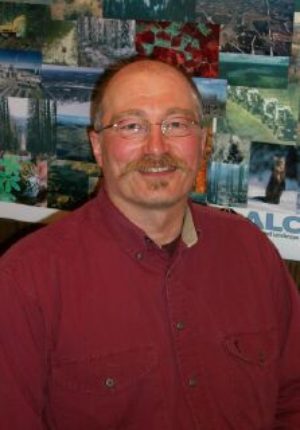Innovation Anthology #52: Scientific Director

Wellsites for energy production take a big chunk out of the boreal forest.
Each wellsite can be half a hectare or more in size.
And even after several decades, you’re more likely to find grass than trees on reclaimed wellsites.
For the past five years, forest ecologist Dr. Terry Osko has been researching ways to improve reclamation technology.
DR TERRY OSKO: What we have been finding is that well sites that are constructed with the soil stripped seem to come back slower in terms of natural regeneration or natural regrowth than sites that don’t have the topsoil stripped. However, there’s a complicating factor. And that is the woody debris that’s leftover the timber is salvaged from the site before the wellsite is constructed. But there still remains woody debris in terms of slash, limbs and the tops of the trees. In some cases that material is mulched. In other cases it’s left whole. But in either case, if there’s too much of it, then it insulates the soil and interferes with natural regrowth.
Dr. Terry Osko will publish in 2008 a manual listing better industrial practices to ensure reclaimed wellsites grow back to productive forest.
Thanks today to the NSERC Industrial Chair in Integrated Landscape Management
FOR INNOVATION ANTHOLOGY, I’M CHERYL CROUCHER
Guest
Jim Fyles, PhD,
NCE-Sustainable Forest Management Network, Montreal, Quebec, Canada, fylesj@nrs.mcgill.ca
Sponsor
NSERC Industrial Research Chair in Integrated Landscape Management
The Integrated Landscape Management Chair is developing a toolkit for ecologically informed land use planning. At the heart of this toolkit is a suite of models capable of integrating multiple land use activities over large areas and long time scales to explore the future impacts of todays land use decisions. The models do this by linking human actions to indicators of ecological, economic, and social condition. They are constrained by their ability to adequately represent the dynamics of complex systems, and our current research emphasis aims to reduce the uncertainties over the impacts of invasive organisms on species at risk in Canadas boreal forest.
The ILM Chair is an initiative of the Department of Biological Sciences at the University of Alberta, with sponsors and collaborators in academia, government, and the private sector.

Program Date: 2007-07-26